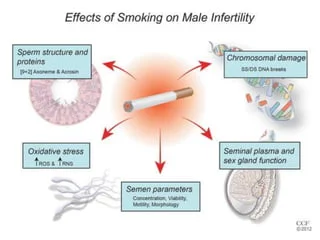The Impact of Smoking and Alcohol on Women’s Reproductive Health
Nov 25, 2024
Introduction
In the fast-paced environment, the practice of smoking and drinking alcohol among women is common but this is harmful as it impacts women’s reproductive health which affects fertility, pregnancy outcomes, and long-term reproductive health. It is important to identify these problems in the early stages so that they can be treated well. Understanding these effects is essential for making informed decisions about health and lifestyle. This blog explores the specific impact of smoking and alcohol on women’s reproductive health and gynecologists in Jaipur.
The Impact of Smoking on Women’s Reproductive Health
- Infertility- Smoking can decrease fertility in women which makes it more challenging to conceive. The chemicals of tobacco can damage the ovaries, reducing the quality and quantity of eggs.
- Miscarriage- Smoking can increase the chances of miscarriage as the harmful chemicals of tobacco can damage the developing fetus.
- Premature Birth- Smoking can cause premature birth of the child. Moreover, it can give rise to health complications.
- Low Birth weight- If women will smoke during pregnancy then it will impact the weight of the newborn child. The weight of the child is low and causes health-related problems.
- Menstrual Irregularities- Smoking can disrupt the menstrual cycle leading to menstrual irregularities and severe pain in the lower abdomen and also cause heavy bleeding.
Alcohol and Reproductive Health
- Fertility and Alcohol- Like Smoking, alcohol can negatively affect a woman’s ability to conceive. Even moderate drinking can cause serious issues that include-
- Hormonal Imbalance—Alcohol can affect the production of hormones like luteinizing and follicle-stimulating hormones. Both are responsible for egg maturation and ovulation.
- Reduced Egg Quality—Chronic Alcohol can be associated with oxirane stress in ovarian cells, which affects the quality of the egg.
- Irregular Menstrual Cycle- Excessive use of alcohol can cause irregular periods or even stop menstruation altogether.
Alcohol During Pregnancy
- Stillbirth- Heavy alcohol can cause stillbirth, particularly in the third trimester.
- Miscarriage- Alcohol can increase the risk of miscarriage.
- Development Delays- Even light to moderate drinking levels of alcohol can affect the baby’s brain development, resulting in long-term behavioral and cognitive issues.
Alcohol and Reproductive Health
- Polycystic Ovary Syndrome (PCOS)- Alcohol can give rise to certain problems like PCOS which is characterized by high levels of male hormones and irregular ovulation.
- Increased Risk of Breast Cancer- Excessive consumption has been linked to higher levels of circulating estrogen that can cause breast cancer.
Steps Toward Better Reproductive Health
- Quit Smoking- Certain programs like nicotine replacement therapy (NRT) can help stop smoking.
- Adopt Healthy Habits- Practice regular exercise and eat a balanced diet that promotes good health.
Limit Alcohol Consumption
- Follow Guidelines- Stick to the recommended guidelines of having one drink per day for women or avoid it entirely if you are trying to conceive.
- Opt for Alternatives- Replace alcohol with healthy drinks like cocktails or mocktails during social gatherings.
Regular Health Check-Ups
Monitor Reproductive Health- You can visit the multispeciality hospital in Jaipur for regular health check-ups.
Fertility Assessment- Women who are planning to conceive should consult a fertility specialist.
Long-Term Reproductive and General Health Implications
- Early Menopause- Smokers are at a higher risk of entering menopause in the early stages which can cause certain health issues.
- Increased Risk of Gynecological Cancer- Smoking and excessive use of alcohol can cause the risk of cervical and ovarian cancers.
Combined Effects of Smoking and Alcohol
When smoking and alcohol use occur together, the impact on reproductive health can be even more severe. These substances can act synergistically to amplify damage to reproductive organs, hormones, and overall fertility. Key combined effects include:
- Greater DNA Damage: The toxins from smoking and the oxidative stress from alcohol together exacerbate cellular damage in eggs.
- Higher Risk of Miscarriage: Women who both smoke and drink during pregnancy are at a significantly higher risk of pregnancy loss.
- Impaired IVF Success: Women undergoing fertility treatments, such as in-vitro fertilization (IVF), experience lower success rates if they smoke and consume alcohol.
Conclusion
Smoking and Alcohol can badly affect the reproductive health of the women. These lifestyle habits disrupt hormonal balance, reduce fertility, and increase the risks of complications such as miscarriage, preterm birth, and fetal developmental issues. Moreover, the combined effects of smoking and drinking amplify the damage, leaving a lasting imprint on both reproductive and overall health.
However, the good news is that many of these adverse effects can be mitigated or even reversed by making healthier lifestyle choices. Quitting smoking, reducing alcohol consumption, and seeking professional guidance can significantly improve reproductive outcomes and overall well-being. By prioritizing a healthier lifestyle, women not only enhance their fertility and pregnancy prospects but also invest in their long-term health and quality of life. If you are experiencing these problems, then you should find the best hospital in Jaipur.
